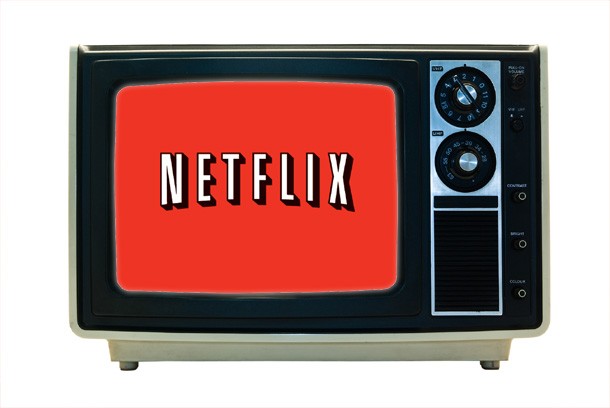As if they weren’t already sucking up everyone’s free time or dominating competing streaming services, this past Tuesday Netflix announced a major boost of “original” content coming in 2018. Media mogul and Netflix CFO, David Wells, announced the company’s plan while speaking at the Morgan Stanley Technology, Media & Telecom Conference on Tuesday, Feb. 27.
The Media & Telecom Conference brings together, “more than 250 public and private companies with more than 1,200 investors to discuss the latest developments, trends and outlook for the technology, media and telecommunications sectors” each year.
According to Wells, Netflix is projected to spend more than $8 billion on content in 2018, becoming home to approximately 700 original TV shows, movies, stand-up comedy and other special programs this year. This is a whole lot of content being produced in hopes that it will increase Netflix’s subscriber base, drawing consumers with other streaming services to its platform.
The “700 range” figure given by Wells includes 80 original productions from outside of the United States like the new German thriller “Dark,” which has received generally positive reviews from audiences and critics after being released in early Dec. 2017.
Netflix has no plans to slow down their content creating anytime soon. In his statement, Wells said the company is still driven to add new content because it has been a clear correlation to the company’s continued increase in subscribers.
The subscription based service is constantly swapping out “classic” films and shows, as well as more modern programming, due to constant shifting rights for content. Every few months you can find dozens of articles titled “What to watch before it leaves Netflix.” By building a stronger base of “original shows” to hook consumers in as their go to shows, can Netflix avoid people leaving their subscriptions for streaming services which now have the rights to their “old reliable” shows?
Continuing his statement, Wells said there’s “no religion” at Netflix about the source of programming, although the company increasingly intends to produce its own content.
“People don’t care where the stories come from,” said Wells. “We’re about having the best content. We don’t necessarily have to do it ourselves.”
In addition to announcing this massive boost of original content, Wells discussed Netflix’s boosting its marketing budget. Last month, Netflix told investors that it would be increasing its marketing costs by more than 50 percent throughout the year. The company spent $1.3 billion on marketing last year, meaning they’re projected to spend $2 billion in 2018. While this is drop in the bucket compared to the budget for producing these new programs, the marketing plan is large part of Netflix’s vision.
Explaining their strategy, Wells said, “[Netflix] used to think every incremental dollar was best spent on content,” but now they will be increasing spending on marketing because they “think marketing is a multiplier on the content spend.”
So, where is Netflix going to be getting the ideas for all of this new content, you ask? Netflix has been making deals with prominent filmmakers and producers in hopes of gaining the rights to strong original content well before it’s even been produced.
Netflix has recently made a “five-year exclusive deal” with producer Ryan Murphy. Murphy’s production company is behind Fox drama “9-1-1” and FX’s “American Crime Story,” “American Horror Story” and “Feud” anthologies. Wells said Netflix’s interest in Murphy comes from “the content he creates,” as well as his appeal to global audiences. When asked about the partnership with Murphy, Wells said “these kinds of pacts are somewhat rare.” However, there’s evidence to argue against that.
This isn’t the first deal of this nature the streaming service has made in recent history. The company signed a similarly massive deal with Shonda Rhimes, ABC’s most prominent producer, last summer. Similarly, just last week, Variety reported that Jay and Mark Duplass, better known as “the Duplass brothers,” had signed an agreement with Netflix that gives the streaming giant the rights to their next four films. The Duplass brothers are veteran American independent filmmakers, known for “The One I Love,” “The Overnight,” “Creep” and “Jeff Who Lives At Home.
“Turns out when you make films for Netflix, millions of people all over the world watch them. This is not a terrible thing for an independent filmmaker,” the Duplass brothers said in a statement. “As Netflix continues to grow and develop new ways to reach viewers, we couldn’t be more thrilled to grow our partnership.”
The Duplass brothers raise a good point. The streaming service is a platform for creators to release their films to a massive audience who don’t have to leave their home or “spend money” on a movie ticket. Netflix’s push into creating and purchasing bigger movies has been a point of contention among most major studios. They fear this will negatively impact the “cinematic experience,” and many creators argue that their films are meant to be seen “on the big screen.”




